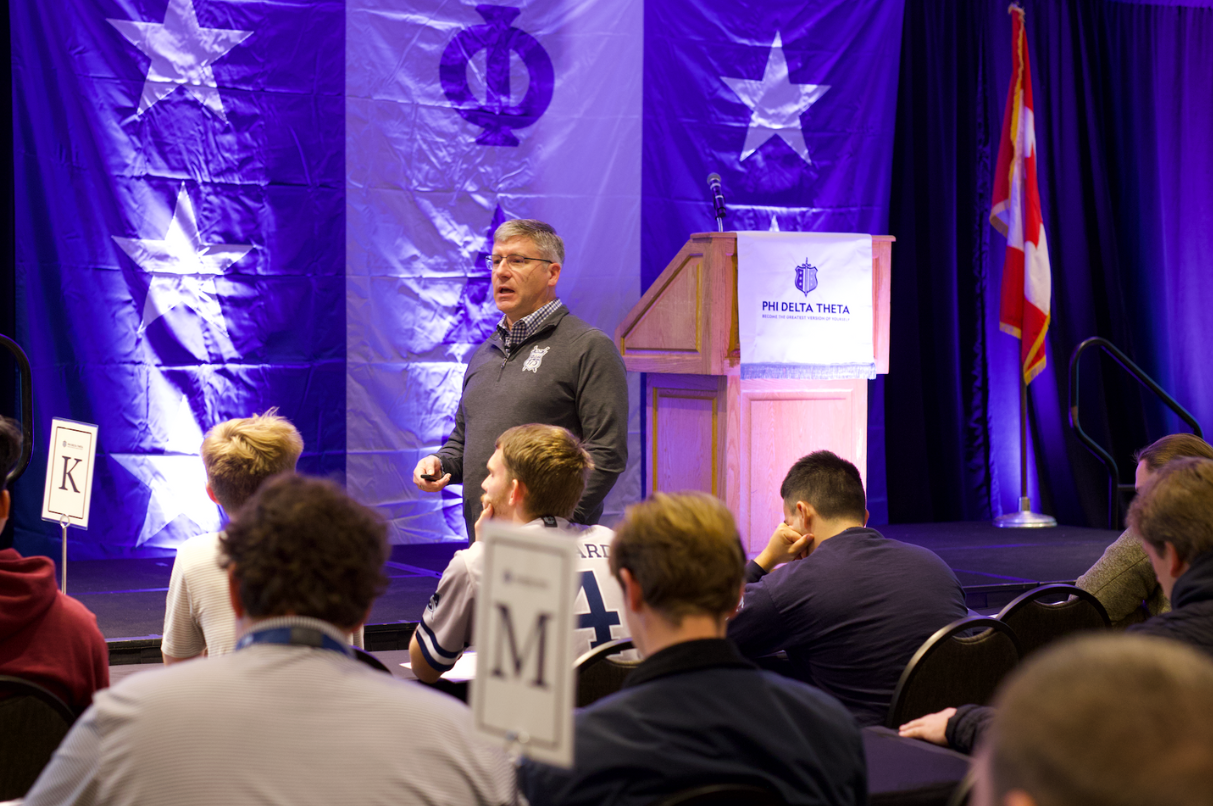by Hank Nuwer, author of “Broken Pledges,” “High School Hazing” and “Wrongs of Passage”. Hank’s post is the final post of Phi Delta Theta’s 2009 National Hazing Prevention Week Blog Series.
My quest to learn more about the reason hazing exists began in the fall of 1975 after the death of varsity football player John Davies at the University of Nevada during his initiation into a subrosa, but still active local club. From the beginning I wanted to know more about the practice, convinced from the beginning that a hazing death not only ended the life of a participant-turned-victim, but that it disrupted—and in some cases ruined—the lives of all touched by that death. My belief was that a nation that allowed human beings of lesser status to be humiliated and abused was a nation whose moral compass was in peril.
So what are the areas related to hazing most in need of change as I now write 35 years (full-time or almost full-time for me since about 1987) since beginning this quest for public awareness about hazing? Let me make a small list, and I thank Phi Delta Theta for allowing me to contribute to this forum.
The timing of this blog entry is perfect. On October 1, 2010, a Hazing Taskforce composed of leading scholars, activists and Greeks will convene in a think-tank setting at the University of Maine.
My intention in writing this list is to highlight problem areas that may aid activists and educators and journalists in selecting targets in special need of reform, rather than merely taking random actions that I see as less effective. Although I was a member of a fraternity and also an athletic team in college, I would like to step into my role as objective journalist to offer my editorial opinion based on the facts as I see them gleaned from my own daily blog dedicated to recording hazing incidents that I have maintained for many years.
While we have seen Greek organizations, athletic powers such as the NCAA and NFHS, and citizen groups (HazingPrevention.org, Security on Campus, Stophazing.org) step up to form coalitions against hazing, there are far more individuals and groups that need convincing. In my opinion, areas in most need of reform are these:
1. Hazing in professional sports must end. Far too many ordinary citizens share the belief that hazing is not only a benign activity, but that it is a positive force that releases tension among members, builds bonds, and only injures, maims or kills those who are unlucky. My main target for change here is to try changing the minds and practices of high-status adults who practice hazing stunts tantamount to buffoonery and negligence. Specifically, there is a need to end the annual team hazing stunts of professional athletes that are then publicized and given legitimacy by broadcast and print media. My criticism here is most specifically aimed at league commissioners, team owners and media heads that have abdicated too much responsibility for making changes that would teach the public, especially impressionable youngsters, that using people of lesser status for cheap entertainment is morally wrong.
2. HazingPrevention.org needs to be joined by citizens of all nations with one voice raised against hazing for the societal human rights abuse that it is. Far too little awareness has come about to see hazing as an international problem to be faced by all nations with one collective voice. While I am of course as aware as the next person that famine, global warming and hostilities among nations are more urgent problems, there is a need for nations to speak in one firm voice to condemn the practice of hazing that has led to needless deaths of young persons in India, the Philippines, Indonesia, Japan, Great Britain, Russia. the United States, etc. Too few activists exist outside of the U.S., India, the Philippines and Russia.
3. The hazing movement needs supporters who are well known to the public at large. While Greek organizations have produced presidents, scholars, presidents, athletes and other notable persons, too few celebrities have expressed outrage against the practice of hazing over time. Like it or not, our young people look to role models for guidance and except for actress Robin Penn Wright (narrator in “Haze: the Movie”), celebrities have failed to lend their names to a call for an end to hazing abuses and deaths. Hazing education needs celebrity vocal input, especially from athletes and high-profile Greeks in government and entertainment.
4. College and university presidents and trustees must stop continuing to pass the buck when it comes to mandating changes to end hazing (and alcohol) deaths on campus. While much media attention has been drawn to high-dollar settlements following a hazing deaths (see Rider University, MIT, etc.), the fact is that college presidents and trustees with a handful of exceptions have turned their heads to the issue of hazing practices on their campus.
5. Some fraternal organizations have resisted joining the hazing education movement—all resistance must end. While there is hardly a single national or international group that lacks at least one hazing activist among its numbers, too few groups have taken the much-need all-out stand that Phi Delta Theta and Zeta Tau Alpha (there are others but no space to name all) have taken against hazing as national organizations per se. My finger is pointed most directly at the boards of some fraternities (more so than sororities and female fraternities) that have tied the hands of their directors who more often than not are committed to ending hazing.
6. Individual coaches and athletic directors at the high school and college level need to step up with one voice. While the NCAA and NFHS unquestionably are aboard the bus bound for changes in attitudes toward hazing and its destructive consequences, there must be a 100 percent by-in by all coaches and athletic directors to end the misguided notion that hazing is a tradition in athletics that must continue.
7. State by state antiquated and poorly written hazing laws must be rewritten. While states such as Florida and California have taken some needed steps to beef up and reword poorly written hazing laws, the recent (2009) failure of hazing laws in Utah, Nebraska and California point to a real need for legislators in nearly all states to rewrite poorly written laws. In my opinion, a badly written law is no better than no law at all. It lets down the families of hazing victims in a most troubling way. That said, six states continue to have no hazing laws at all, and an attempt to add a law in Wyoming was shot down by the state Senate a couple years ago.
8. High school and college students must express outrage instead of amusement when their peers post photos of hazing incidents on Social networking sites. Sites such as Youtube, Facebook and MySpace ought to write a policy stating that hazing photos should not be posted. That ought to be clear enough.
9. Hazing research needs to be regarded as not only legitimate scholarly research but as valuable, integral research in such critical areas as psychology, education, law enforcement, the law, military science and sociology, etc. To this end I offer sincere thanks to Buffalo State College’s Butler Library for its attempt to back my determination to see all significant hazing research (dissertations, white papers, books, legal and scholarly articles) collected in its Special Collections area. I think the complaint of Dr. Charles Eberly of the Center for the Study of the College Fraternity that academicians by and large do not see the value of scholarly research in the area of hazing and Greek groups themselves is a legitimate concern.
Thanks to Phi Delta Theta for a chance to air my views. As the taskforce on hazing education and prevention convenes at the University of Maine in a few days (you still can have a place at the table by the way if you hurry), I am hopeful that the unbroken string (1970-2009) of hazing deaths at the college level in the U.S. every year, as well as the horrific number of international deaths in military and student groups, can somehow be ended.
Which brings me to point my finger at one more person.
10. I can and must do more as a journalist to tell the story of those who have died in hazing incidents. One important responsibility of every journalist is to speak for the voiceless and those who have been victimized in some way.
I can do better. Much better. Can you? Will you?
Hank Nuwer is the author most recently of “The Hazing Reader” (Indiana University Press). In addition to a biography on Kurt Vonnegut, he is at work on other books viewing hazing as an historic, societal problem of long standing.





